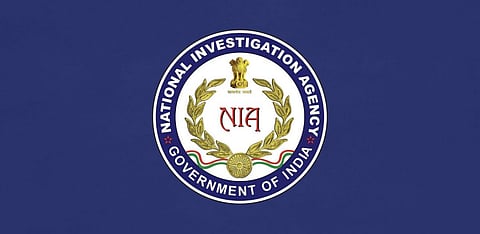

The National Investigation Agency was directed to comply with the predecessor judge's Order dated May 23, 2022, directing the it to provide a chart on data of documents.
—
ON Tuesday, a National Investigation (NIA) court of special judge Rajesh Kataria directed the NIA to provide a chart of the data of the cloned copies of seized documents in the Bhima Koregaon-Elgar Parishad Maoist links and criminal conspiracy case.
The plea is for the NIA to comply with Section 207 (supply of a copy of the police report and other documents to the accused) of the Code of Criminal Procedure (CrPC).
During the previous hearings, the accused persons had raised the grievance that despite filing several applications with the investigating authorities under Section 207 of the CrPC, they had not been allowed access to the compact disks, which are an important piece of evidence furnished by the NIA in the case.
On July 1, advocate Shifa Khan, appearing on behalf of accused persons— Sudha Bharadwaj, Gautam Navlakha and Hany Babu— had filed a pursis praying the court to direct the NIA to submit a chart consisting the details of electronic devices seized in the case, cloned copies of electronic devices that are already supplied by the accused persons, cloned copies that are yet to be supplied and the dates by which the NIA will supply the rest of cloned copies.
According to the pursis, the NIA's affidavit states that it supplied cloned copies of certain electronic devices. However, it fails to clearly establish which cloned copies were supplied which ones are yet to be supplied.
Today, Khan argued that the cloned copies of 798 seized documents still remain to be supplied to the accused persons.
The judge asked the accused persons to point out the details of the copies of electronic evidence, yet to be supplied to the accused persons, in the NIA's affidavit.
To this, activist and lawyer Arun Ferreira submitted that the burden of compliance with Section 207 of CrPC cannot be put on the accused persons.
Human rights lawyer and Dalit rights activist Surendra Gadling stated that the NIA's affidavit only mentions the titles of the documents.
Further, Khan, along with Ferreira, pointed out the NIA's failure to comply with the order of the predecessor judge of the NIA court, dated May 23, 2022, that had directed the NIA to furnish a chart consisting the details of electronic devices seized in the case to be supplied to accused persons.
Gadling also reiterated the need for the NIA to comply with the Order of the predecessor judge, dated May 23, 2022.
Investigating officer Pradeep Dhale apprised the court that since the data could not be recovered from one hard disk, the disk was sent to the United States Federal Bureau of Investigation.
As the data on the cloned copies remains unclear, the judge directed special public prosecutor Prakash Shetty, appearing for the NIA, to comply with the predecessor judge's Order dated May 23 last year.
Particularly, Shetty was directed to submit a statement containing details of the cloned copies of documents supplied and remaining to be supplied to the accused persons.
Reiterating that the information should be provided in the form of a chart, the judge directed Shetty to submit the statement by the next date of the hearing.
The judge noted that after the chart is submitted by the NIA, the accused persons can verify the number of cloned copies that remain to be supplied.
The matter is posted for further hearing on September 18.
In connection with the Elgar Parishad–Bhima Koregaon case, on June 6, 2018, Pune police arrested Gadling; Dalit rights activist and editor of the Marathi magazine Vidrohi, Sudhir Dhawale; activist and researcher, and member of the Committee for the Release of Political Prisoners, Rona Wilson; former head of the English department at Nagpur University, and Dalit and women's rights activist, Shoma Sen; and forest rights activist and former fellow of Prime Minister's Rural Development Fellowship Programme of the Union Ministry of Rural Development, Mahesh Raut.
On August 28, 2018, activist, poet, writer and teacher Dr P. Varavara Rao; trade unionist, activist and lawyer, Sudha Bharadwaj; Arun Ferreira; trade unionist, activist and academic, Vernon Gonsalves; and human rights activist and journalist, Gautam Navlakha were arrested and lodged in Mumbai's Taloja jail.
In the subsequent months, scholar, writer and civil rights activist, Dr Anand Teltumbde; tribal rights activist and Jesuit priest, Father Stan Swamy; an anti-caste activist, Hany Babu; and musical performers, anti-caste activists and members of the cultural troupe Kabir Kala Manch, Sagar Gorkhe, Ramesh Gaichor and Jyoti Jagtap, were also arrested.
Trial is yet to begin in the Bhima Koregaon case. The prosecution in the case has filed a chargesheet exceeding 5,000 pages and intends to cross-examine at least 200 witnesses.
Ten of the 16 accused persons are presently incarcerated, having now spent between two to almost five years in judicial custody without trial.
In addition to Gonsalves and Ferreira, who were granted bail on July 28, three of the other accused persons, Sudha Bharadwaj, Varavara Rao and Anand Teltumbde have also managed to secure bail so far.
Another accused, tribal rights activist and Jesuit priest Father Stan Swamy, passed away in judicial custody in July 2021 after contracting Covid in prison while awaiting bail on medical grounds.
An investigation by Arsenal Consulting, a leading, independent expert firm on digital forensics, has revealed that sophisticated malware was used to plant the digital evidence that forms the basis for the prosecution's case on the devices of two of the accused persons in the case, Surendra Gadling and Rona Wilson.